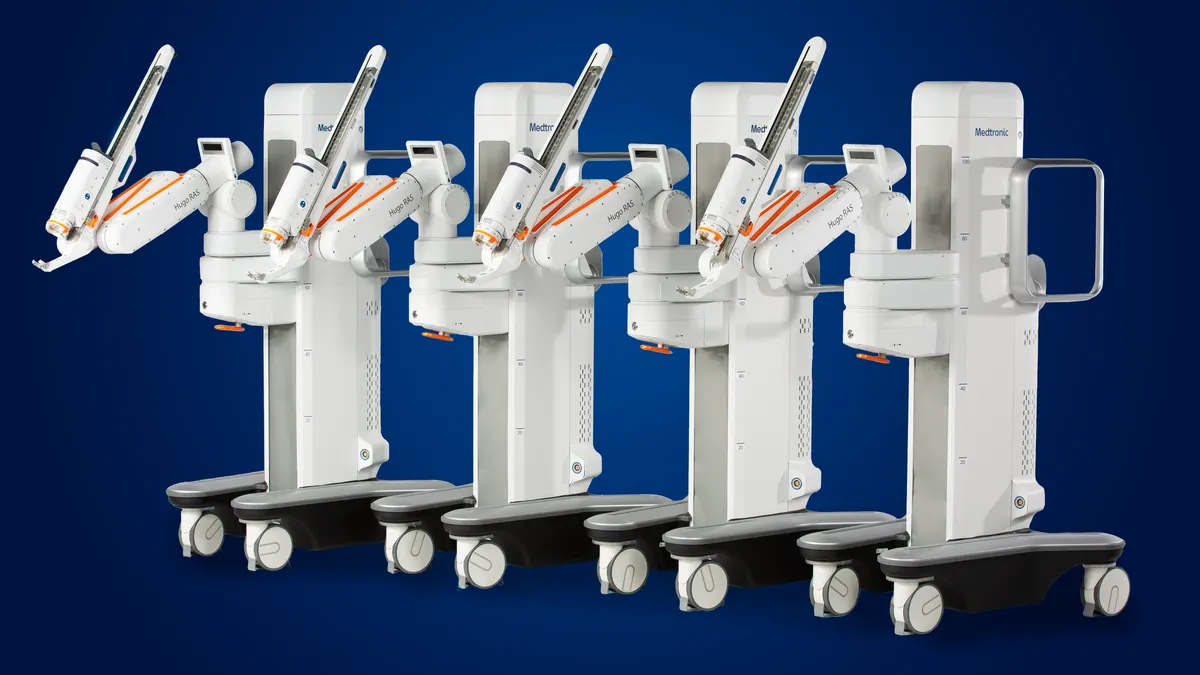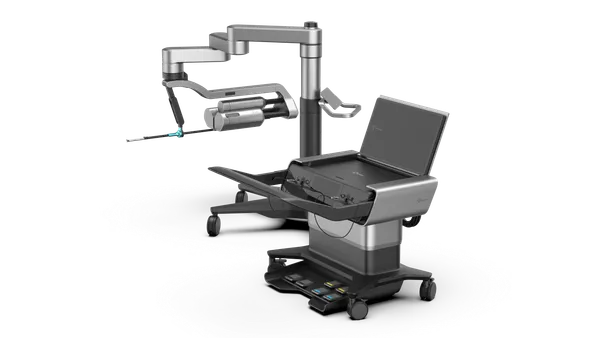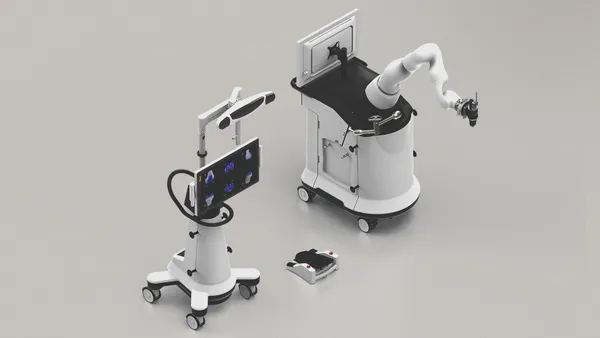Dive Brief:
- A clinical trial of Medtronic’s Hugo robot has met its primary effectiveness and safety endpoints, the company said Thursday.
- Physicians used the robotic-assisted surgery system to treat 193 patients. All of the surgeries were successfully completed. Two people had surgical safety events in the 30 days after treatment that were resolved without complication.
- Medtronic has filed for authorization of the system in a urology indication and plans to expand into hernia repair later. The company will compete with Intuitive Surgical for the hernia market.
Dive Insight:
Medtronic’s attempt to ease Intuitive’s grip on the robotic surgery market centers on a system designed to be more versatile than existing products. Hugo has a modular design, giving surgeons the flexibility to use the number of arms needed for a procedure and resulting in a system that can be moved between operating rooms.
The company has identified hernia repairs as procedures that do not typically require four arms and may benefit from the flexibility of the Hugo system. To validate Hugo in the indication, Medtronic enrolled 193 patients, split roughly evenly between people undergoing inguinal and ventral hernia repair.
Medtronic reported a 100% surgical success rate in the trial, beating the pre-specified 85% performance goal to meet the primary effectiveness endpoint. The trial defined surgical success as a procedure that was completed without switching to laparoscopy, open surgery or an alternative robotic-assisted system.
Intuitive received 510(k) clearance for its da Vinci system in inguinal hernia repair in 2017 and added ventral hernia repair to the list of authorized indications in 2018. The label expansions were supported by a retrospective clinical study and real-world evidence.
Medtronic reported no surgical site events in the 92 inguinal hernia repair patients who were available for analysis. The trial defined an event as a surgical-site occurrence or infection related to the device or procedure from the first incision through 30 days post-procedure. There were two events in the cohort of 94 ventral hernia patients. The 2.1% event rate was below the pre-specified 30% performance goal.
The mean length of hospital stay was 4.7 hours for inguinal patients and 6.7 hours for ventral patients. Using the data, Medtronic plans to expand the label for Hugo to cover hernia procedures after winning its first authorization in urology.
Targeting hernia will move Medtronic into an indication that is central to Intuitive’s business. In each of the past three years, more than half of the da Vinci procedures were for benign conditions, most notably hernia repairs, hysterectomies and cholecystectomies.
Intuitive said strong growth in general surgery procedures, notably cholecystectomies, hernia repair and appendectomies, drove 14% growth in U.S. da Vinci procedures in the second quarter. The company named gynecological procedures, another setting targeted by Medtronic, as an additional growth driver.













